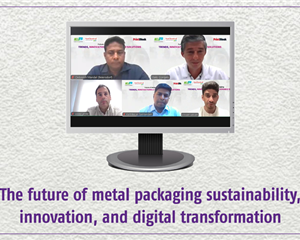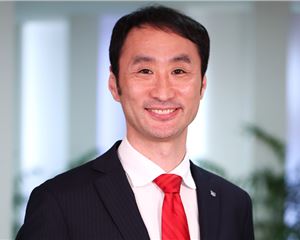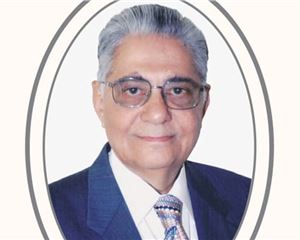Samir Singh: Frankly, we don't want to see more woke advertising
The EVP of Unilever’s near $10 billion global skin cleansing and oral care unit, Samir Singh, says brands can’t hunt for purpose in the middle of a pandemic
11 Jun 2021 | By WhatPackaging? Team
Unilever EVP Samir Singh, who oversees nearly 25 brands amounting to around $10 billion in revenue, thinks it may be too late for brands to belatedly hunt for a sense of purpose, especially this deep into the pandemic. Singh, who oversees brands such as Lifebuoy and Dove, believes the time for brands to be fiddling with their purpose is long gone.
“If your brand purpose doesn't play a role in the biggest crisis that humanity has seen, since the World War, you really need to question whether your brand purpose is in the right place,” Singh told Campaign Asia-Pacific. “Frankly, we don't want to see more woke advertising.” The pandemic compelled storied brands such as Lifebuoy to pivot its business and purpose sharply, he contends.
“We kind of set up more than 40 to 50 factories of sanitiser because the world really needed sanitiser, we distributed almost €50 million of free bar soap and sanitiser and hand wash liquid to the world,” he said. “Finally, this business works because people trust these purpose-led brands.”
This Unilever business benefited from the pandemic as people flocked to purchase sanitisers and soap to protect themselves from Covid. By collaborating with competitors such as Dettol and Lux in key markets such as India, where specific brand names were mentioned in campaigns pushing people to wash their hands, Unilever has sought to take the high road.
“People love to say every crisis is an opportunity, and I'm sure it's right in many contexts," he said. "But when you're selling hand wash and sanitiser, we were very clear that the crisis is a crisis, it's not an opportunity. Which is why when we were setting up the factories and prioritising production, we were very clear that it needs to go to people on the front lines, wherever they are.”
If brands such as Lifebuoy have made more apparent pivots to their business, then for Singh, leading others such as Dove in a new direction was more challenging. In this case, in-house research showed that over two-thirds of women respondents stated dry hands as the top reason to avoid sanitsers. That and appeals from frontline workers in the US prompted Dove, best known for its soaps and bodywashes, to foray into this category, with what it claims is the world’s first sanitising and hydrating formula. “You need to pivot on the way the world is going and you can still be consistent to your brand, but be relevant to where the world is,” he said.
In the other part of his business, oral care, Singh has had the opportunity to drive increased product penetration of its CPC (cetylpyridinium chloride) mouthwash, which Unilever claims significantly reduces Covid-19’s viral load. From being available in Russia only, the company set up a global supply chain and has thus far extended its reach to 11 countries across Europe, Middle East, South Asia (pictured above is Pepsodent's mouthwash for India, which uses this innovation) and Southeast Asia. And, to support this push, Unilever worked with three global KOLs and ramped up efforts in engaging dentists with face-to-face visits, digital communication and webinars to introduce the CPC mouthwash.

One of the levers Unilever has been able to lean on during the pandemic has been its growing ecommerce muscle—accounting for a tenth of its business now, and growing. Singh’s businesses too are benefiting from this shift online. “One myth that I want to always kind of expose is that ecommerce is not just about premium and new (but) actually, core brands, big brands, which sell in offline retail, contribute to the bulk of the market share and turnover online.”
One trend that Singh's business is seeing, is the growth online of products that deal with self-care, such as bath bombs and salts for those with bathtubs, and gels and scrubs for those with only a shower. To tap this trend, the business has launched a range of offerings ranging from Find Your Happy Place and Beloved within its Love Beauty Planet range at North America's Target chain. Closer to home, Unilever launched Lux Bath and Beauty on ecommerce platforms in China. “There is a trend of self-care and mental wellbeing that ecommerce is helping to drive,” Singh said.

Lux products on China's ecommerce platforms
Despite this push to find new purpose in a pandemic, an uneven recovery from Covid worldwide challenges consumer goods companies to disaggregate their marketing strategies across markets. “While we run these brands, globally… we are always acutely aware that there is no global consumer,” Singh said. “Especially for our biggest markets, we run very tailor-made innovations and advertising, even if it is on a global brand.”
For example, the marketing in the US, focused on tapping an explosion in body washes, is very different from the kind of market development advertising and innovation and small packs that Dove is doing in emerging markets. “Even in the best of times, we kind of operate on this continuum, but now even more, as you can understand," Singh said. "The world is in such diametrically different places, [we] are very, very acutely sort of aware of that.”
This article first appeared on CampaignAsia.com













 See All
See All